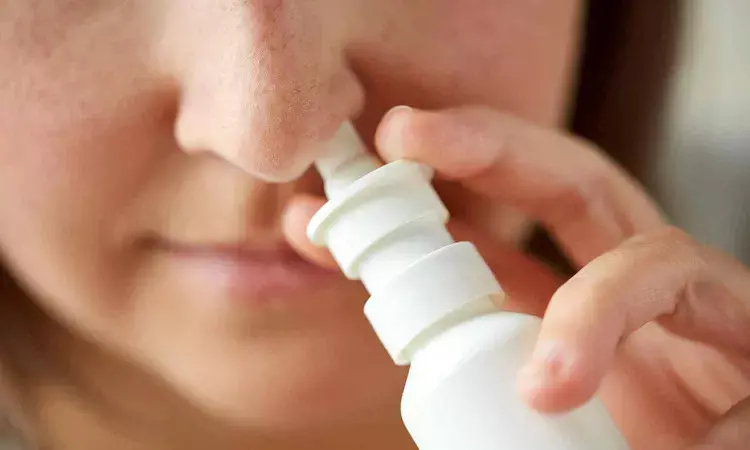- Home
- Medical news & Guidelines
- Anesthesiology
- Cardiology and CTVS
- Critical Care
- Dentistry
- Dermatology
- Diabetes and Endocrinology
- ENT
- Gastroenterology
- Medicine
- Nephrology
- Neurology
- Obstretics-Gynaecology
- Oncology
- Ophthalmology
- Orthopaedics
- Pediatrics-Neonatology
- Psychiatry
- Pulmonology
- Radiology
- Surgery
- Urology
- Laboratory Medicine
- Diet
- Nursing
- Paramedical
- Physiotherapy
- Health news
- Fact Check
- Bone Health Fact Check
- Brain Health Fact Check
- Cancer Related Fact Check
- Child Care Fact Check
- Dental and oral health fact check
- Diabetes and metabolic health fact check
- Diet and Nutrition Fact Check
- Eye and ENT Care Fact Check
- Fitness fact check
- Gut health fact check
- Heart health fact check
- Kidney health fact check
- Medical education fact check
- Men's health fact check
- Respiratory fact check
- Skin and hair care fact check
- Vaccine and Immunization fact check
- Women's health fact check
- AYUSH
- State News
- Andaman and Nicobar Islands
- Andhra Pradesh
- Arunachal Pradesh
- Assam
- Bihar
- Chandigarh
- Chattisgarh
- Dadra and Nagar Haveli
- Daman and Diu
- Delhi
- Goa
- Gujarat
- Haryana
- Himachal Pradesh
- Jammu & Kashmir
- Jharkhand
- Karnataka
- Kerala
- Ladakh
- Lakshadweep
- Madhya Pradesh
- Maharashtra
- Manipur
- Meghalaya
- Mizoram
- Nagaland
- Odisha
- Puducherry
- Punjab
- Rajasthan
- Sikkim
- Tamil Nadu
- Telangana
- Tripura
- Uttar Pradesh
- Uttrakhand
- West Bengal
- Medical Education
- Industry
USFDA nod to first Nasal Spray for Anaphylaxis

U.S. Food and Drug Administration has approved neffy (epinephrine nasal spray) for the emergency treatment of allergic reactions (Type I), including those that are life-threatening (anaphylaxis), in adult and pediatric patients who weigh at least 30 kilograms (about 66 pounds).
“The approval provides the first epinephrine product for the treatment of anaphylaxis that is not administered by injection. Anaphylaxis is life-threatening and some people, particularly children, may delay or avoid treatment due to fear of injections,” said Kelly Stone, MD, PhD, Associate Director of the Division of Pulmonology, Allergy and Critical Care in the FDA’s Center for Drug Evaluation and Research. “The availability of epinephrine nasal spray may reduce barriers to rapid treatment of anaphylaxis. As a result, neffy provides an important treatment option and addresses an unmet need.”
Allergic reactions happen when a person’s immune system reacts abnormally to a substance that normally does not cause symptoms. Anaphylaxis is a severe, life-threatening allergic reaction that typically involves multiple parts of the body and is considered a medical emergency. Common allergens that can induce anaphylaxis include certain foods, medications and insect stings. Symptoms usually occur within minutes of exposure and include, but are not limited to, hives, swelling, itching, vomiting, difficulty breathing and loss of consciousness. Epinephrine is the only life-saving treatment for anaphylaxis and has previously only been available for patients as an injection.
Neffy’s approval is based on four studies in 175 healthy adults, without anaphylaxis, that measured the epinephrine concentrations in the blood following administration of neffy or approved epinephrine injection products. Results from these studies showed comparable epinephrine blood concentrations between neffy and approved epinephrine injection products. Neffy also demonstrated similar increases in blood pressure and heart rate as epinephrine injection products, two critical effects of epinephrine in the treatment of anaphylaxis. A study of neffy in children weighing more than 66 pounds showed that epinephrine concentrations in children were similar to adults who received neffy.
Neffy is a single dose nasal spray administered into one nostril. As with epinephrine injection products, a second dose (using a new nasal spray to administer neffy in the same nostril) may be given if there is no improvement in symptoms or symptoms worsen. Patients may need to seek emergency medical assistance for close monitoring of the anaphylactic episode and in the event further treatment is required.
Neffy comes with a warning that certain nasal conditions, such as nasal polyps or a history of nasal surgery, may affect absorption of neffy, and patients with these conditions should consult with a health care professional to consider use of an injectable epinephrine product. Neffy also comes with warnings and precautions about use of epinephrine by people with certain coexisting conditions and allergic reactions associated with sulfite.
The most common side effects of neffy include throat irritation, tingling nose (intranasal paresthesia), headache, nasal discomfort, feeling jittery, tingling sensation (paresthesia), fatigue, tremor, runny nose (rhinorrhea), itchiness inside the nose (nasal pruritus), sneezing, abdominal pain, gum (gingival) pain, numbness in the mouth (hypoesthesia oral), nasal congestion, dizziness, nausea and vomiting.
The FDA granted neffy Fast Track designation for this application.
The FDA granted the approval of neffy to ARS Pharmaceuticals.
Read also: Major depressive disorder drug: USFDA nod to Granules India Trazodone Hydrochloride Tablets
Ruchika Sharma joined Medical Dialogue as an Correspondent for the Business Section in 2019. She covers all the updates in the Pharmaceutical field, Policy, Insurance, Business Healthcare, Medical News, Health News, Pharma News, Healthcare and Investment. She has completed her B.Com from Delhi University and then pursued postgraduation in M.Com. She can be contacted at editorial@medicaldialogues.in Contact no. 011-43720751
Dr Kamal Kant Kohli-MBBS, DTCD- a chest specialist with more than 30 years of practice and a flair for writing clinical articles, Dr Kamal Kant Kohli joined Medical Dialogues as a Chief Editor of Medical News. Besides writing articles, as an editor, he proofreads and verifies all the medical content published on Medical Dialogues including those coming from journals, studies,medical conferences,guidelines etc. Email: drkohli@medicaldialogues.in. Contact no. 011-43720751


